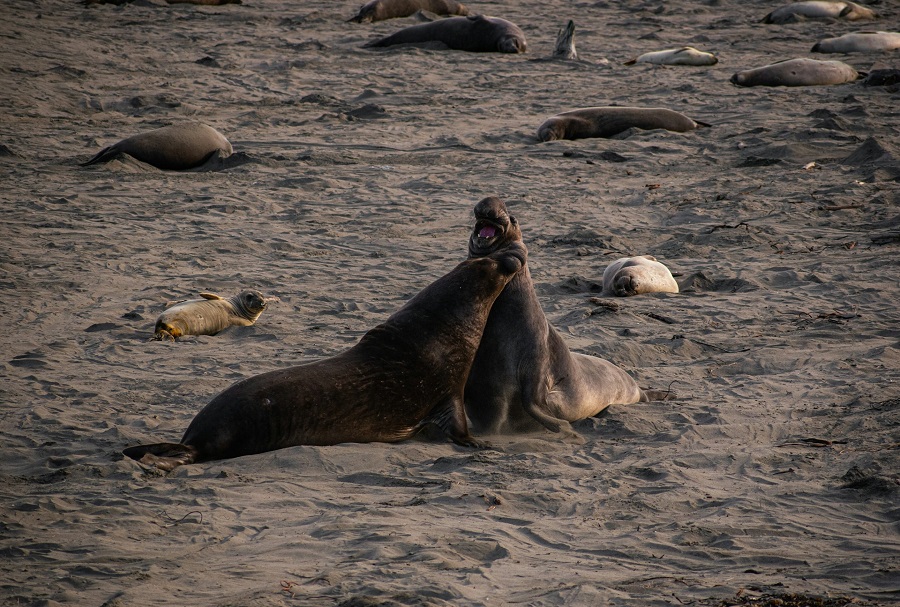11 Dec 2024

Tired Earth
By The Editorial Board

Mammals that have evolved more developed brains tend to have a smaller size difference between males and females of that species, according to new research led by the University of Bath and published in Nature Communications.
In many mammal species, the males can be bigger than the females (or vice versa), a trait called sexual size dimorphism (SSD). For example, male elephant seals are around three times bigger than females. In contrast, dolphins have no difference in sizes between the sexes. Humans are somewhere in between, with the average male being larger than the average female, but across the population there is an overlap.
To understand how this trait is associated with genome evolution, scientists from the Milner Center for Evolution at the University of Bath looked at similarities between the genomes of 124 species of mammals.
They grouped the genes into families of similar functions and measured the size of these gene families. They found that those species with a big difference in size between the sexes had bigger gene families linked to olfactory functions (sense of smell) and smaller gene families associated with brain development.
Therefore, this could also mean that those species with very little difference in sizes between males and females (termed monomorphic) had bigger gene families associated with brain development.
The authors suggest that in species with a large SSD, traits such as the sense of smell could be important for identifying mates and territories. In contrast, mammals with a smaller SSD are potentially investing in their brain development and tend to have more complex social structures. This means they compete for mates using other means than simply using size to select who to breed with.
Dr. Benjamin Padilla-Morales, from the Milner Center for Evolution at the University of Bath led the research. He said, "We were surprised to see such a strong statistical link between a large SSD and expanded gene families for olfactory function. Even more interestingly, the gene families under contraction were linked with brain development.
"This could mean that those species with a small SSD have bigger gene families associated with brain function and tend to show more complex behaviors such as biparental care and monogamous breeding systems.
"It shows that while size in some species is an important sexual selection pressure for evolution, for others it doesn't matter so much.
"It makes us ask the question how traits like SSD are shaping the evolution of our brains and genomes."
In future work, the researchers want to investigate how testes size impacts the evolution of mammals' genomes.
Source : phys.org
Comment